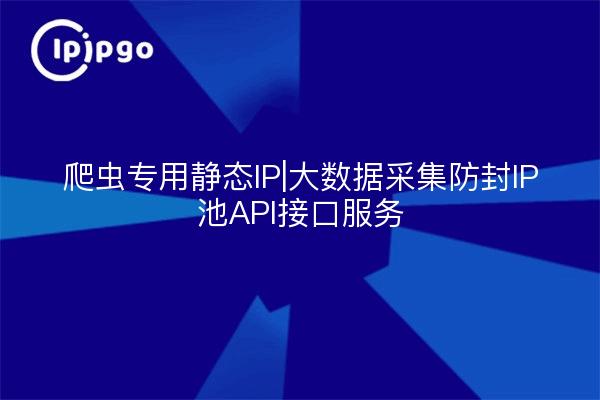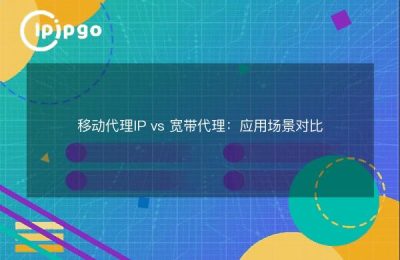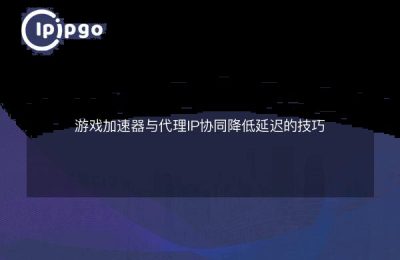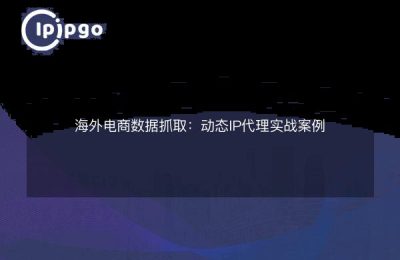
Why is your crawler always "recognized"? The problem may lie in the IP
Do data collection friends have experienced this situation: obviously set up a random access interval, with a camouflaged request header, the program running or run by the target site blocked. At this time, many people will repeatedly adjust the crawler code, but often ignore the most critical factors - theYour real IP was exposed long ago.The
A web server is like a neighborhood security guard, it remembers what each visitor looks like (IP address). When the same IP appears frequently within a short period of time, the protection mechanism will be triggered. Using ipipgo's residential proxy IP is equivalent to changing the 'face' of a different resident for each visit, allowing the server to assume it is a natural visit from a normal user.
How to choose between static IP and dynamic IP? Scenario Matching Table
Many newbies can't tell the difference between these two agent types, so here's a practical example to illustrate:
Static Proxy IP Applicable Scenarios:
- Capture tasks that need to remain logged in (e.g., e-commerce price monitoring)
- Automated operations to maintain sessions for extended periods of time
- Data crawling for fixed IP requirements in specific areas
Dynamic IP Pooling Applicable Scenarios:
- Massive concurrent acquisition tasks
- Business scenarios that require frequent identity switching
- Projects to prevent the triggering of restrictions on the frequency of visits
ipipgo supports two modes at the same time, and users can freely switch between them on the console according to their task requirements. Especially recommend theirIntelligent Routing FunctionThe ability to automatically match the best IP type is relatively rare for a service of its kind.
Three steps to build an anti-blocking IP pool (with configuration examples)
In the case of the Python crawler, for example, accessing the ipipgo API interface is very simple:
import requests
def get_proxy().
Call the ipipgo API to get the dynamic residential IPs
proxy = requests.get("https://api.ipipgo.com/dynamic").json()
return {
'http': f'http://{proxy["ip"]}:{proxy["port"]}',
'https': f'https://{proxy["ip"]}:{proxy["port"]}'
}
Initiate a request using a proxy
response = requests.get('target site', proxies=get_proxy())
Take care to set up a reasonableIP switching frequencyIt is recommended to dynamically adjust the protection strength in conjunction with the target website. ipipgo'sSuccess Rate Monitor PanelYou can view the request pass rate of different IP segments in real time to facilitate timely optimization of the strategy.
White guide to avoid the pit: these details determine success or failure
Many users report that they are still blocked even after using proxies, and the common problems are centered on:
1. IP purity is lacking:IPs from certain proxy providers are heavily abused. ipipgo's residential IPs come from real home networks and are cooled for a minimum of 12 hours after each use before being redeployed
2. Protocol mismatch:https sites must use proxies that support SSL, in the ipipgo backend you can filter the IPs of the specified protocol type
3. Geographic mismatch:When collecting localized content, pay attention to selecting the IP of the corresponding city. ipipgo supports three-level filtering by country, province and city, and its core advantage is the accurate IP resource base at the city level.
Frequently Asked Questions
Q: Will opening multiple crawler threads at the same time rob IPs?
A: ipipgo's API supports batch IP acquisition, it is recommended to pre-fetch the IP pool in advance according to the number of threads, and use the exclusive proxy independently for each thread.
Q: What do I do when I encounter a CAPTCHA?
A: It is recommended to work with ipipgo'sHigh Stash Agent ModelUse, this mode will hide the proxy features and at the same time reduce the access frequency. If CAPTCHA still appears, you need to adjust the acquisition strategy instead of just changing IPs
Q: How to detect whether the agent is effective?
A: Access provided by ipipgoIP Detection InterfaceThe current IP geolocation and network type of the egress being used is returned in real time.
Choosing a professional proxy service provider can make data collection twice as easy as with half the effort. ipipgo, as one of the service providers with the richest residential IP resources in the world, itsCity-level positioning accuracyrespond in singingReal User IP PoolThe characteristics of the platform have obvious advantages in dealing with complex anti-climbing strategies. By reasonably configuring the proxy rules and cooperating with the monitoring tools provided by the platform, the collection success rate can be effectively increased to more than 95%.








